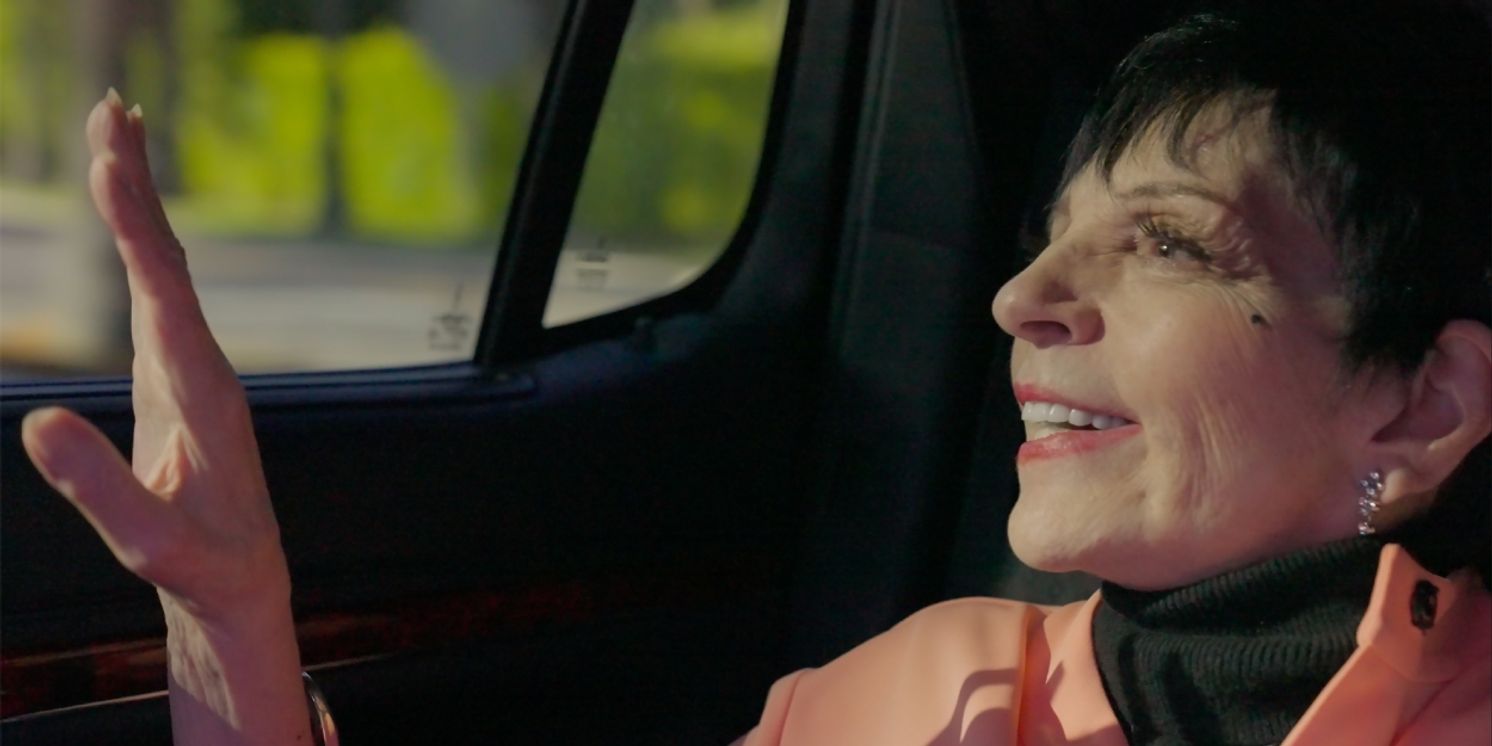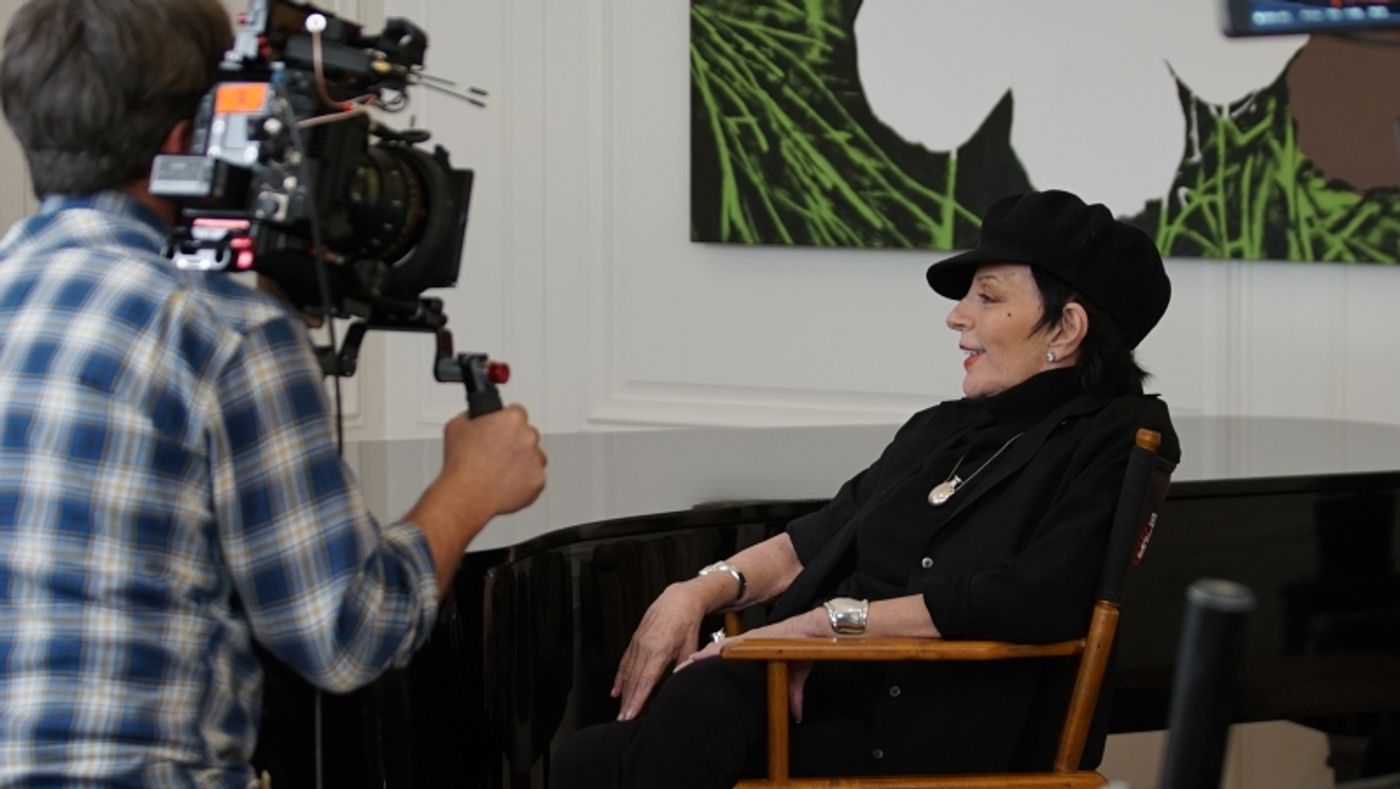Interview: How Director Bruce David Klein Captured the Real Liza Minnelli for His New Documentary
Discover the Untold Story of Liza Minnelli Through Bruce David Klein's Lens

There are few living performers more iconic than Liza Minnelli. From her onstage concerts to her Academy-Award-winning turn as Sally Bowles in Cabaret, Liza Minnelli and her characteristic style have permeated popular culture for the better part of 50 years.
But, in addition to the EGOT-winning performer that we all know and love, there is also her more personal side. As the daughter of another Hollywood legend Judy Garland, she grew up in the spotlight, learning how to navigate the press and, at the same time, discover who she was herself.
Filmmaker Bruce David Klein sought to capture all of this- the good and the bad- in his new film which contains hours of previously unseen footage and new interviews with Liza and her friends. Appropriately titled Liza: A Truly Terrific Absolutely True Story, the documentary picks up after the death of her mother, giving viewers a look at how her mentors helped shape her and allowed her to cultivate her undeniable talents.
With the film now screening in New York and Los Angeles, BroadwayWorld sat down with Klein to discuss his approach to the film, his relationship with Liza the person, and why he is drawn to the world of show business as a subject.
This interview has been condensed for clarity and length.
 There is a moment in the film when Darren Criss remembers the first time he was introduced to Liza's work. I’d love to hear your first significant memory of her as a performer.
There is a moment in the film when Darren Criss remembers the first time he was introduced to Liza's work. I’d love to hear your first significant memory of her as a performer.
I remember it very vividly. It was when Cabaret came out. I was way too young to see it, but I remember the poster and how naughty and inviting it looked. I wanted to see that movie, whatever that was. But it wasn't until 1980 when I was older and could actually go see a movie that I saw Arthur. I saw this amazing comedic actress, and it kind of shocked me when I realized that this was the same woman on the poster.
But the real moment that affected me very profoundly was when I saw Liza's at the Palace in 2008. At the time, Liza had recently had hip surgery and had just gotten out of a crazy marriage. There was a lot of talk about her not being able to sing or dance anymore. I was sitting in the audience and there were hushed tones- everyone was silent. The spotlight came on and Liza stepped out. She made one of her signature body movements with arms outstretched and the audience lost its mind in a way that I have never seen before or since. People were standing on the Broadway seats, there were grown men and women with tears streaming down their faces. I realized in that instant that Liza has a connection with her audience that goes way beyond her movies or her music.
And different generations are going to be introduced to her in different ways because she’s done so many things in her career.
When we first started, our first surprise was that a lot of people don't know that Judy Garland was her mother. And then you have some people who know her as a great sitcom actress from Arrested Development. Some people know her as the funny woman from Sex in the City, but who don't even know Cabaret or Arthur, or her performances with Sammy Davis Jr. and Frank Sinatra. The depth and length of her career allow for different people to have very different points of view about her.
Was there a particular angle or direction that you wanted to take from the start or did that come up as you were talking to Liza and her friends?
For any documentary film, one of the things that you want to avoid is a chronological recitation of the person's life. It gets very tedious watching that. So you are looking for a way to tell the story and to show off your subject. Now, obviously at some point, she has to sing Cabaret, and at some point, you want to see a film clip of her in concert or in a movie.
It sounds pretentious, but you just absorb and dive so deeply into the material. You watch the footage, do the research, talk to hundreds of people, and, eventually, the material starts talking to you. In this case, we saw in watching a lot of her archival interviews, she kept saying "He invented me." or "She invented me" which is an odd turn of phrase. And yet it was very Liza.
During one of the first questions I asked her, I mentioned Fred Ebb, and she interrupted and said "Oh, Freddy invented me." At that point, a light bulb went off and it became obvious that the way to tell her story was this idea of how, after the tragic death of her mother, she sought out these brilliant mentors to polish her explosive, raw diamond of talent.
She also had this really interesting separate talent of finding the right people to help her and to be friends with. If she wanted to polish her dancing, she would connect with Bob Fosse. If she wanted to polish her clothes, she would connect with Halston. That is a totally separate genius.
In the film, you highlight Liza's ability to make other people feel very valuable and seen. Was that your experience with her as well?
This is Liza at her core: she really wants to be friends with you. She wants you to like her. She wants you to make her laugh, and she wants to make you laugh. When you meet her, the most disarming thing about her is that she will lean in and ask you a question about you. And then she asks you another question. And eventually, you realize, my God, she literally cares about you. This is such an unusual quality for almost everyone, let alone a celebrity and icon of her level. It's so endearing, and that's her truth. When she's on stage, she does that on a mass level with the audience feeding off their love, and then giving even more to make the audience love her even more. It's a fascinating dynamic, and it cuts to the heart of who Liza is and what it's like being around her.
She's completely present in the moment, whether she's on stage or not.
Oh, absolutely. She lives very, very much in the moment. She loves humor, and also she loves cracking people up and making jokes. If you tell Liza a joke and she laughs, she's your friend for life. And that's why we put in that Darren Criss story when she says, "This is the gang now," which took Darren Criss by surprise. She makes you feel so included in her life. It's an extraordinary character trait.
 I understand that during filming, one of her requests to you was that the movie doesn't make her look like a "phony." How did you interpret that and how did that influence how you put it together?
I understand that during filming, one of her requests to you was that the movie doesn't make her look like a "phony." How did you interpret that and how did that influence how you put it together?
When we were talking on camera, I think Liza had the sense that she was being more authentic than she maybe had been in the past. Not that she was inauthentic in the past, but she was raised in a system where you need to make the world seem sunny. I told her at the beginning of the process, "I'm here to tell your story and show people who you really are."
She called me into her bedroom after a day shoot and asked me, "Please don't put in anything phony in the movie." I think that was her way of winking at me and saying that she was okay with it being authentic and not always full of sunshine and rainbows- although there is some of that.
As a documentary filmmaker, you have covered the world of show business a couple of times, with your involvement with Best Worst Thing That Ever Could Have Happened and now this. Why is this a subject area that you return to and do you have any plans to come back to it in the future?
I've been a passionate Broadway freak my entire life. I got into it through a fascination with lyrics, a love of Stephen Sondheim's work and Frank Loesser's work. I love the history and the lore.
I also did a film earlier in my career called Meat Loaf: In Search of Paradise, which was about the rock performer who also started on Broadway and, as an actor, was in The Rocky Horror Picture Show. I keep getting drawn back into it because it's an area where I feel extremely comfortable. I love walking down hallways and hearing the edit rooms going with music I love, written by songwriters who I admire. It's just really my safe space.
The movie opened Jan. 24, 2025 at IFC Center in New York, Jan. 31 at Laemmle’s Royal in Los Angeles and Town Center in Encino, and is also screening regionally. See here for the full screening schedule and take a look at the trailer below.
Photos Courtesy of Atlas Media Corp, A Zeitgeist Films Release in Association with Kino Lorber
Videos

